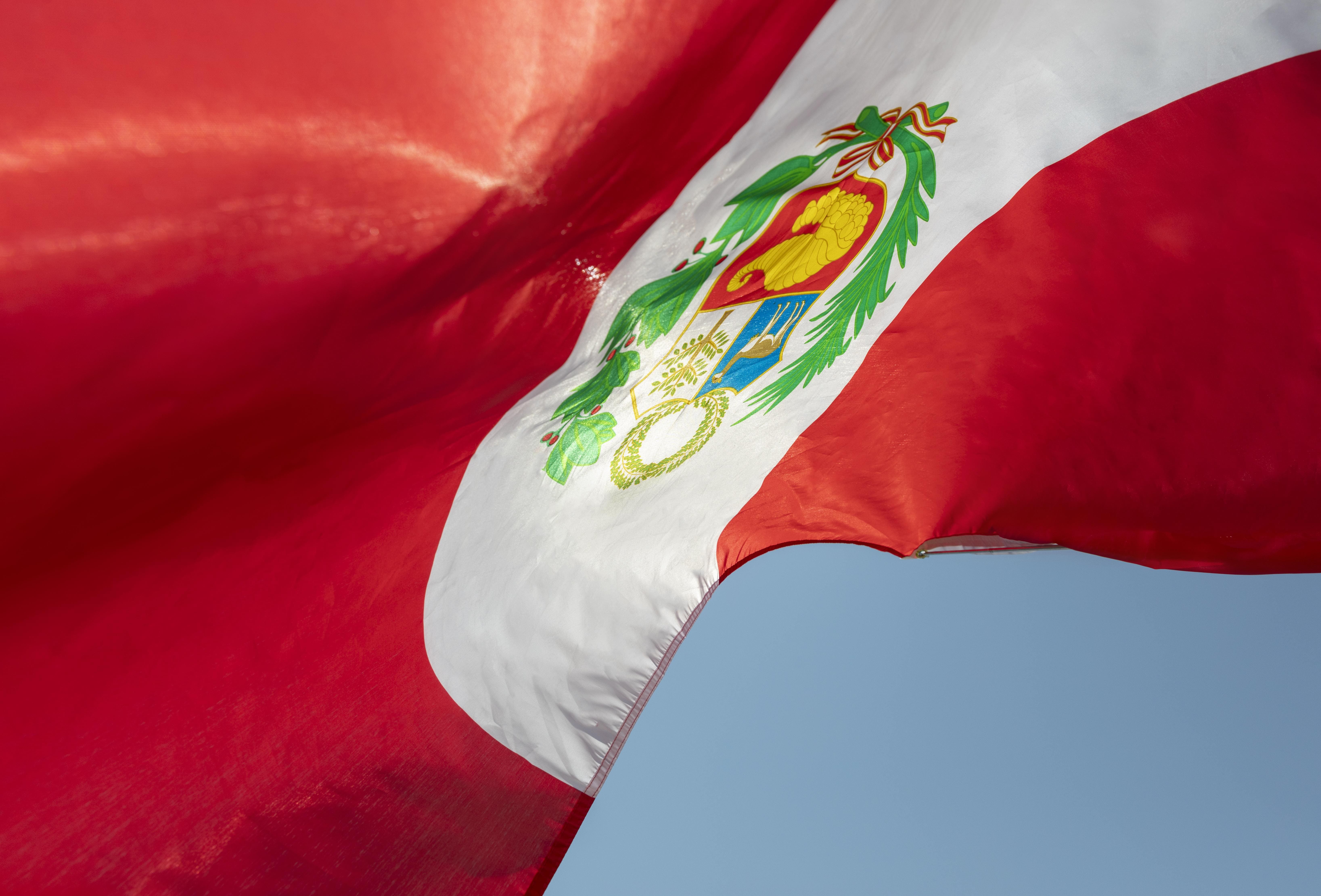Whether you're a prospective investor seeking to establish a foothold in the United States or simply looking to gain a comprehensive understanding of E-2 Visa Requirements, this article is designed to be your ultimate guide. We leave no stone unturned as we delve deep into the essential aspects of these prerequisites. Our goal is to provide you with invaluable insights and a thorough understanding of the E-2 Visa process. Through a meticulous dissection of the eligibility criteria, application procedures, and potential modifications, we aim to arm you with the knowledge required to confidently navigate this often intricate visa category. Join us in this exploration, and let's decipher the nuanced landscape of E-2 Visa Requirements together, enabling you to make informed decisions and unlock a world of new investment opportunities.
Understanding the E2 Visa
What are the E-2 Visa Requirements?
To qualify for E-2 classification as a treaty investor, there are several key criteria that must be met. Firstly, the individual must be a national of a country with which the United States maintains a treaty of commerce and navigation. Additionally, the treaty investor must have either already invested, or be actively in the process of investing, a substantial amount of capital into a bona fide enterprise within the United States. This investment is defined as the placement of capital, including funds and other assets, at risk in a commercial sense with the aim of generating a profit.
It's crucial that this capital is subject to potential partial or total loss in the event that the investment does not succeed. Moreover, the funds used for the investment must not have been obtained, directly or indirectly, from any form of criminal activity.

When considering the investment for the E-2 visa, at Visa Franchise, we highly recommend a minimum investment of $100,000. In terms of defining what constitutes a "substantial amount of capital," it must be substantial in relation to the total cost of either purchasing an established enterprise or establishing a new one. It should also be sufficient to demonstrate the treaty investor's financial commitment to the enterprise's successful operation and of a magnitude that supports the likelihood of successful development and direction of the enterprise. It's important to note that for lower-cost enterprises, the investment must be proportionately higher to be considered substantial.
In addition to the criteria mentioned above, it is important to address the marginality requirement for the E-2 visa. This requirement stipulates that the business in which the investor is involved must have the capacity to generate a significant economic impact and must not be marginal in nature. In other words, the business should not solely provide a source of income for the investor and their family, but it should also contribute to the broader economy by creating jobs or stimulating economic growth.
Furthermore, demonstrating that the business is poised to generate profits is of utmost importance. This showcases the viability and sustainability of the enterprise, aligning with the overarching goal of the E-2 visa program.
When preparing for the interview, having a solid and comprehensive business plan is crucial. It serves as a roadmap for the success of the enterprise and demonstrates a clear understanding of the market, competition, and financial projections. At Visa Franchise, we understand the significance of a well-crafted business plan and can provide expert assistance in its development to increase your chances of a successful E-2 visa application.
Most Frequently Used E-2 Visas Forms
In the process of obtaining an E-2 visa, navigating the requisite paperwork is paramount. Three of the most frequently used forms in this endeavor are the DS-160, DS-156E, and Form I-129. The DS-160, also known as the Online Nonimmigrant Visa Application, serves as a comprehensive application form for nonimmigrant visas, including the E-2. It gathers essential personal information and details regarding the purpose of the visit.The DS-156E, or the E-2 Treaty Investor Visa Application, is a specialized form tailored specifically for E-2 visa applicants. It delves into the specifics of the investment, including financial details, and provides a comprehensive overview of the enterprise in question.Additionally, the Form I-129, officially titled the Petition for a Nonimmigrant Worker, is submitted by the U.S. employer or petitioner on behalf of the treaty investor. This form seeks to establish the qualifications of the applicant and the legitimacy of the enterprise.

The Most Common E-2 Fees and Their Associated Costs
For entrepreneurs considering the E-2 Visa, it's crucial to understand the associated costs and fees involved in the process. Here at Visa Franchise, we provide a comprehensive investor visa package designed to facilitate the establishment of your business, ensure its success in the U.S., and ultimately, drive profitability. Now, let's delve into the detailed breakdown of these expenses.The comprehensive Investor Visa Full Package, inclusive of all necessary services, ranges from $7,500 to $8,300. Additionally, there are Immigration Attorney Fees, which can range from $2,500 to $10,000, based on the complexity of the case. The DS-160 Visa Application Fee is a fixed cost at $315, while the Biometrics Services Fee for the primary applicant is $85. For each additional dependent, an extra $85 is incurred.
It is important to note that these fees are paid directly to the United States Citizenship and Immigration Services (USCIS) at the time of Visa petition submission.
In cases where a Franchise Attorney is required, an estimated cost of $2,500 is applicable, and this fee is typically paid during the Franchise Due Diligence Process. It's worth considering that these costs can be spread out either upfront or over the course of six months, allowing for flexibility in financial planning once the investment decision is made.
How long does it take to get an E2 visa?
The E-2 Investor Visa process timeline varies depending on whether the application is filed with the USCIS within the United States or from a U.S. Consulate abroad. For applicants in the U.S., the typical USCIS process takes around five months, though this duration can fluctuate based on various factors. However, expedited processing is an option through the payment of a premium processing fee, which guarantees adjudication within fifteen days.This means that USCIS will render a decision, either approving or denying the petition or requesting additional evidence, within that time frame. It's important to note that a change of status within the U.S. grants E-2 status, not a full E-2 Visa.This status is valid for two years, and if international travel is required, a visa must be obtained from the applicable U.S. Consulate in the future. For those not requiring travel outside the U.S., E-2 status can be renewed every two years to maintain eligibility.For applicants going through a U.S. Consulate, processing times range from approximately two weeks to four months, with an interview scheduled after an initial review. If approved, the visa itself may take up to a week to be issued. While some U.S. consulates provide estimated processing times, these are not guarantees and may vary in practice.
What is the minimum requirement for an E2 visa?
The E-2 visa program doesn't specify a strict minimum investment threshold, but this flexibility shouldn't be misconstrued as an invitation for nominal contributions. While some successful E-2 applicants have invested as little as $80,000, it's important to note that many E-2 investments tend to be higher. The U.S. Citizenship and Immigration Services (USCIS) emphasizes that an E-2 investment must meet specific criteria. It should be substantial relative to the overall cost of purchasing or establishing an enterprise, ensuring the investor's financial commitment to its successful operation.Moreover, the investment should demonstrate a magnitude that supports the likelihood of the investor effectively developing and directing the enterprise. In cases where the enterprise has a lower cost, the investment must proportionally be higher to be deemed substantial. It's imperative to understand that E-2 investments cannot be marginal; they must yield more income than what's required to sustain the individual investor. For prospective E-2 investors, we recommend a minimum investment of $100,000 to ensure a solid foundation for your business venture. Seeking legal guidance from an experienced immigration attorney is the most reliable way to determine the minimum E-2 visa investment that best suits your specific business venture.
Example of E-2 Visa Holders
Latest Updates to the E-2 Visa Program
The latest updates to the E-2 visa program, as outlined in the James M. Inhofe National Defense Authorization Act for Fiscal Year 2023, bring forth some notable changes. One significant development is the inclusion of Portugal in the list of countries eligible for both E-1 Treaty trader visas and E-2 Investor visas.
While this expansion is welcomed news, the specific duration of an E-2 visa for Portuguese nationals is yet to be clarified. Another noteworthy adjustment affects prospective E-2 visa applicants who have acquired secondary citizenship through investment to meet the eligibility criteria.
The Act now mandates that these individuals must have resided in their newly acquired country of citizenship continuously for at least three years before applying for an E visa. For instance, if an individual born in China obtains Grenadian citizenship through investment, they can apply for an E-2 visa using the Grenadian passport only after residing in Grenada for a minimum of three years. Prior to the Act, there was no formal requirement regarding residency in the secondary citizenship country before applying for an E-2 visa. It's important to note that these changes do not apply if the secondary citizenship was obtained through means other than investment, such as marriage or descent.
Can my family members come with me on an E-2 visa?
Yes, under the E-2 visa program, your immediate family members, including your spouse and unmarried children under 21 years of age, can accompany you to the United States. They can be granted E-2 dependent visas, allowing them to live and study in the U.S. while you engage in your investment activities. Additionally, your spouse will have the option to apply for work authorization, which would permit them to seek employment in the U.S.Keep in mind that your family members' E-2 visa status is contingent on your own E-2 visa status, so if your E-2 visa expires or is terminated, their dependent visas will also become invalid.
How We Can Assist You
At Visa Franchise, we pride ourselves on our exceptional expertise in facilitating business ventures that lead to legal U.S. residency. What sets us apart is our unwavering dedication to prioritizing our clients' needs. Our proficiency extends beyond helping international entrepreneurs find the perfect American franchise; we also excel in turning their aspirations into tangible realities.Recognizing that relocating to a foreign country, especially for those whose native language may not be English, can be a daunting prospect, we take every measure to ensure a smooth and rewarding journey for our clients. For individuals eager to invest in a franchise and secure a U.S. investment visa to pursue their entrepreneurial dreams, we extend a warm invitation to take that crucial first step with Visa Franchise.Contact us today, and let's embark on this transformative venture together. Your American business endeavor and the path to legal residency await with anticipation! Simply fill out this form to initiate the process.

Conclusion
In conclusion, whether you're a prospective investor or someone seeking a comprehensive understanding of E-2 Visa Requirements, this article serves as your ultimate guide. Our aim is to provide you with invaluable insights and a thorough understanding of the E-2 Visa process. By dissecting eligibility criteria, application procedures, and potential modifications, we equip you with the knowledge required to confidently navigate this intricate visa category. Join us in this exploration, and let's decipher the nuanced landscape of E-2 Visa Requirements together, enabling you to make informed decisions and unlock a world of new investment opportunities. Remember, at Visa Franchise, we're here to support you every step of the way on your journey towards legal U.S. residency through entrepreneurship.
Discover if you qualify to invest in a thriving U.S. franchise and secure your E-2 visa.
Check your eligibility
More Insights You Might Like
Explore related articles packed with expert advice, real stories, and practical tips to support your U.S. visa and relocation journey.





